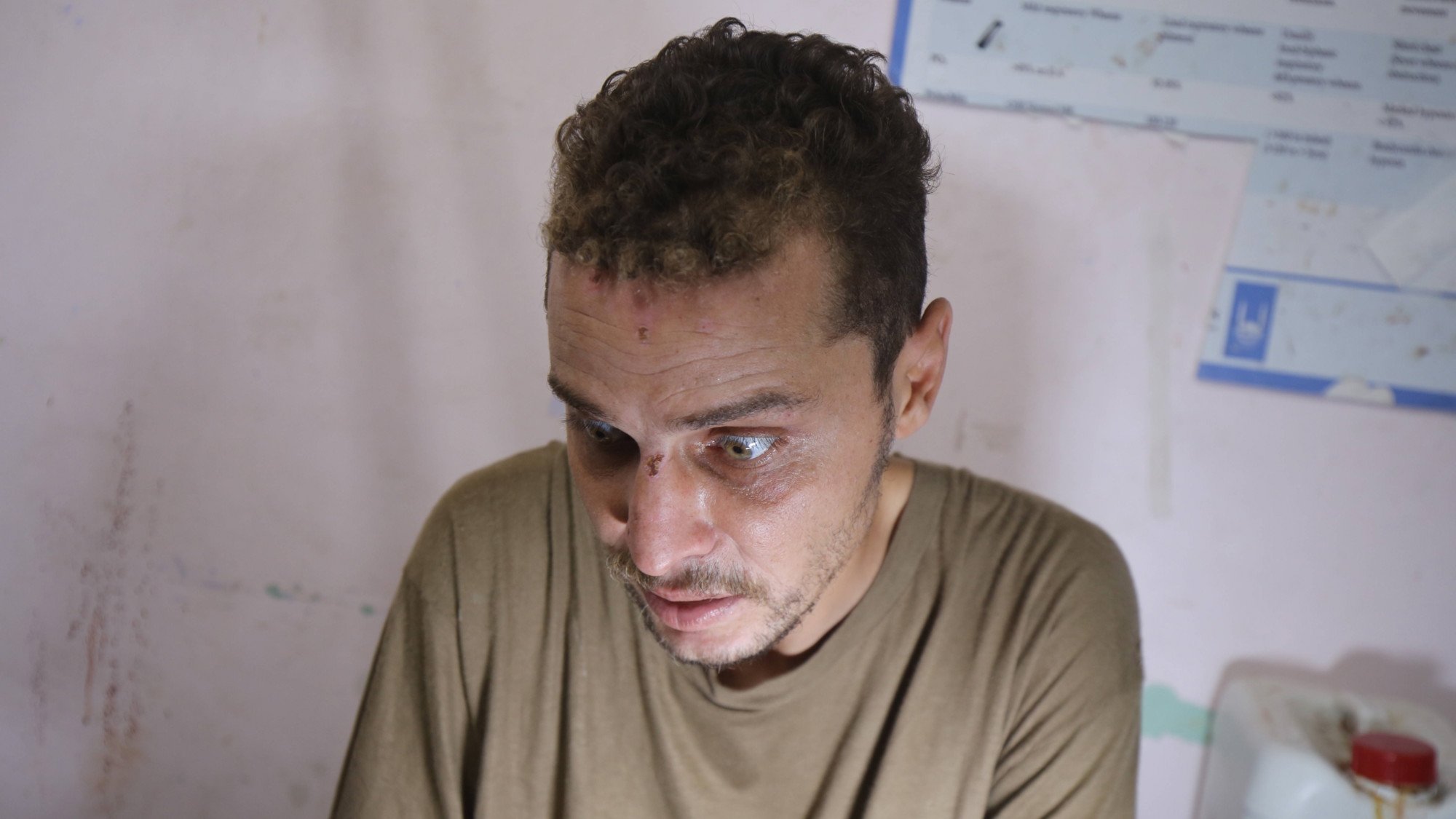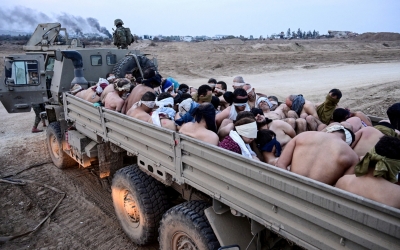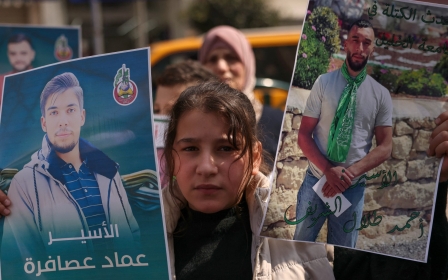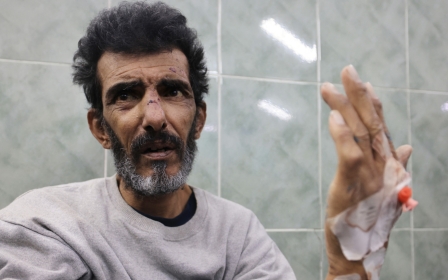Israel systematically abusing Palestinian detainees in 'torture camps', says B'Tselem

Israeli authorities are systematically abusing Palestinians in torture camps, subjecting them to severe violence and sexual assault, B'Tselem said on Monday.
In a new 118-page report, the Israeli rights group accused the government of conducting a policy of institutionalised abuse and torture against all Palestinian detainees since 7 October.
Torture was recorded in civilian and military detention facilities across Israel, leading to the death of at least 60 Palestinians while in Israeli custody in less than 10 months.
The systematic nature of the abuse across all facilities left “no room to doubt an organised, declared policy of the Israeli prison authorities”.
The report, titled “Welcome to Hell”, is based on 55 testimonies from former detainees from the Gaza Strip, the occupied West Bank, East Jerusalem and citizens of Israel, the overwhelming majority of them held without being tried.
New MEE newsletter: Jerusalem Dispatch
Sign up to get the latest insights and analysis on Israel-Palestine, alongside Turkey Unpacked and other MEE newsletters
The interviewees described the abuse in “horrifying detail and chilling similarities,” said B'Tselem.
According to the report, the torture prisoners faced included: “Frequent acts of severe, arbitrary violence; sexual assault; humiliation and degradation, deliberate starvation; forced unhygienic conditions; sleep deprivation, prohibition on, and punitive measures for, religious worship; confiscation of all communal and personal belongings; and denial of adequate medical treatment.”
The torture targeted detainees for being Palestinian, regardless of their origin and political views, the report explained.
Those abused included prisoners held before the war erupted on 7 October, as well as nearly 4,800 held arbitrarily without charge or trial.
'This is the definition of a torture camp: a place that once you enter... you will be subjected to severe, deliberate, relentless pain and suffering'
- Yuli Novak, B'Tselem executive director
Among them people detained for expressing sympathy for the suffering of Palestinians, men taken from Gaza based on a vague definition of being of “fighting age” and others taken on suspicions - substantiated or not - that they were supporters or members of Palestinian armed groups.
“Thousands of Palestinians are being held in inhuman conditions and subjected to relentless abuse,” Yuli Novak, B'Tselem executive director, said.
“Some do not know why they were arrested; many will be released without trial. This is the definition of a torture camp: a place that once you enter - no matter who you are or why you were arrested - you will be subjected to severe, deliberate, relentless pain and suffering.”
Novak said the government “cynically exploited our collective trauma” caused by the Hamas-led 7 October attack to employ the “racist, violent agenda” of National Security Minister Itamar Ben Gvir, who oversees prison authorities.
“This government has driven us to an all-time moral low, proving again its utter disregard for human lives - of the Israeli hostages in Gaza, of Israelis and Palestinians living through ongoing war, and of the Palestinians held in torture camps,” Novak added.
Crime against humanity
The abuse described in the B'Tselem report matches dozens of testimonies given to Middle East Eye and other media outlets since the war started.
Last month, MEE spoke with Palestinian bodybuilder Muazzaz Abayat after he was released from prison emaciated, unable to walk unaided, his right arm jerking shapelessly in front of him and his face a picture of confusion.
Before the Israeli army arrested him late last year, Abayat was a muscular and confident man. An amateur bodybuilder, he weighed 109kg. After nine months in Israeli prisons, the Palestinian lost more than half of his body weight and was suffering from psychological problems caused by the trauma he experienced.
Abayat was beaten so regularly, so brutally and by so many different people in prison that he now sees everyone as a potential threat. His first words to MEE were: “I have not been beaten for the three days since I left jail. I was told that I was not going to be beaten in this hospital.”
Speaking slowly but fluently, he said he could not recall his life before Israeli soldiers arrested him: “I can't get the prison out of my head and can't remember. I am still living in the prison. I have the prison inside me.”

B'Tselem detailed similar testimonies, with several people reporting sexual assault.
The rights group said reports of sexual violence suggested it was “recurring with varying severity and carried out by soldiers or prison guards against Palestinian prisoners”.
Last week, nine Israeli soldiers in the notorious Sde Teiman facility were detained for questioning over alleged sexual abuse against a Palestinian detainee, which led to him being hospitalised with serious injuries to his rectum area. The soldiers deny the charges.
Since 7 October, Israeli authorities unleashed a massive crackdown on Palestinians across the occupied territories and within Israel.
Nearly 10,000 people were arrested from the occupied West Bank and East Jerusalem alone in the past 10 months, and around 3,000-5,000 were taken from the Gaza Strip.
Around 10,000 people remain in custody as of July, nearly double the number of Palestinian detainees before the war, according to HaMoked, an Israeli-based human rights group.
B'Tselem said the Israeli violations against Palestinian detainees lead to the “inevitable conclusion that Israel is committing torture that amounts to a war crime and even a crime against humanity”.
The group called for international bodies, including the International Criminal Court (ICC), to immediately intervene to “stop the brutal treatment of Palestinians in these detention facilities”.
Middle East Eye delivers independent and unrivalled coverage and analysis of the Middle East, North Africa and beyond. To learn more about republishing this content and the associated fees, please fill out this form. More about MEE can be found here.




